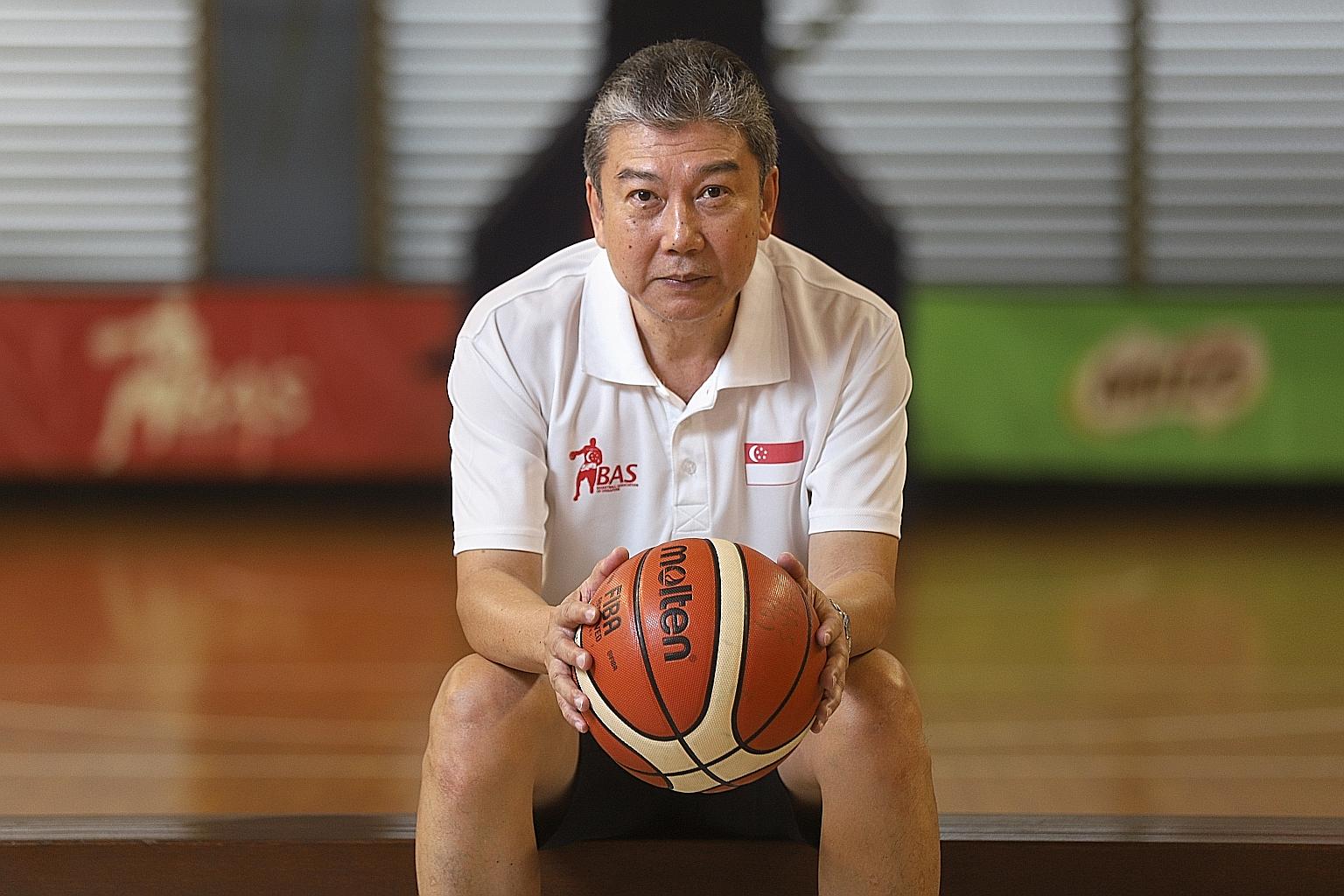Cagers set lofty targets
Chief aims for SEA Games men's gold in 2029, cites popularity and talent grooming as factors
Sign up now: Get the biggest sports news in your inbox

President Hoo Boon Hock says the BAS wants to set up senior 3x3 teams to capitalise on the increasingly popular format that will debut at this year's Tokyo Olympics.
ST PHOTO: MARCELLIN LOPEZ
With just one silver and six bronze medals at the SEA Games, the national cagers have rarely made an impact on the international stage.
But Basketball Association of Singapore (BAS) president Hoo Boon Hock, who took over from former Member of Parliament David Ong last June, is not shying away from bold ambitions.
Hoo, 60, told The Sunday Times he expects the men, whose last medal was a bronze in Singapore 2015, to return to the podium in Vietnam 2021.
The long-term target, he added, is a historic gold in 2029 and he believes that the Republic can qualify for the Fiba Asia Cup in 2026, and the World Cup in 2031.
He shares similar hopes for the women's team, with a slightly longer timeline.
Two factors give Hoo the confidence for such lofty goals.
The first is the level of enthusiasm here for the sport. The 2015 National Sports Participation Survey found basketball to be the most enjoyed sport among teens (13 to 19) while last year's National School Games saw almost 8,000 primary, secondary school and junior college student-athletes involved in the basketball competitions.
The second is better talent development. The BAS is partnering national agency Sport Singapore (SportSG) to set up three to four regional training centres with Under-14, U-16 and U-18 male and female teams, comprising 30 elite players each, later this year.
This will complement the ActiveSG Basketball Academy (ABA) launched in 2016. There are now five nodes islandwide.
Hoo said: "With many national players signed with the Singapore Slingers and young players coming through the ABA, we want to synergise with both as we recognise this tripartite relationship is the key to growing Singapore basketball."
An ongoing issue is the lack of regular playing time for national players who do not feature for the Slingers in the Asean Basketball League. It offers high-level exposure and games for seven months each season while the domestic National Basketball League is over in a month.
The BAS hopes to create a semi-professional league here and send the national teams for more overseas invitationals in Hong Kong and Thailand to address this.
Hoo, Anglican High School's former head of department for physical education who has since retired, also wants to explore new areas.
The BAS wants to form senior 3x3 teams to take part in September's Asia Cup qualifiers and next year's SEA Games in the increasingly popular format that will debut at the Tokyo 2020 Olympics.
"We didn't have senior teams last year, but our girls' team managed to beat Malaysia and Indonesia at an invitational, so that is a good start," said Hoo, who has been involved at the BAS for more than three decades and last served as deputy president from 2013 to 2019.
The popular Merlion Cup, which features top clubs from the region, could return next year.
Such dreams and plans do not come cheap and Hoo, who is the first non-MP to head the organisation, acknowledged the BAS' challenges and financial constraints.
The association received around $1.2 million in grants from SportSG last year. About $500,000 was used to cover facilities costs, while the remainder was for operational costs, like salaries and the running of BAS programmes.
Hoo paid tribute to the efforts of BAS chief executive Toh Kian Lam and marketing and publicity chairman Mikell Koh.
Koh brought in sponsorship of $250,000 in cash and in kind in the last financial year. Toh is looking to raise funds by increasing bookings for the Singapore Basketball Centre and organising more weekend programmes and holiday camps.
Toh, Nanyang Technological University's former local community engagement office executive director, joined BAS last October.
Non-Chinese players form a third and a quarter of the U-18 men and women's national team respectively but he believes that, as the talent pool widens, the greater diversity will appeal to more sponsors.
"We also have to do our part to reach out to potential sponsors and investors, and share with them what our plans are and how they could also benefit from the exposure," he added.
"Such relationships and trust may take a long time to cultivate, but we have to start now."


